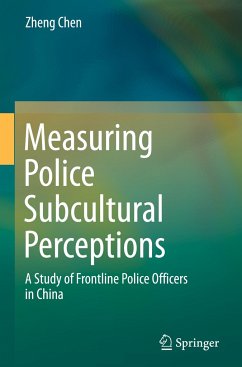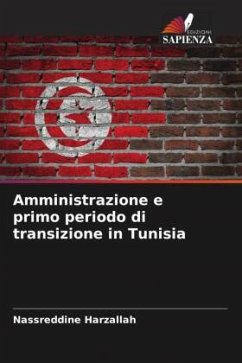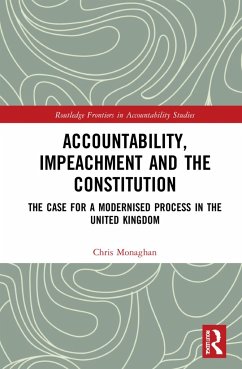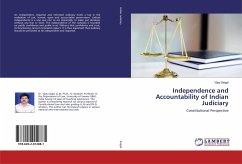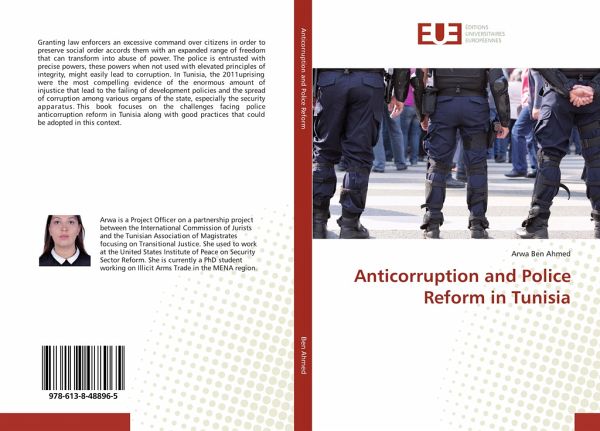
Anticorruption and Police Reform in Tunisia
Versandkostenfrei!
Versandfertig in 6-10 Tagen
47,99 €
inkl. MwSt.

PAYBACK Punkte
24 °P sammeln!
Granting law enforcers an excessive command over citizens in order to preserve social order accords them with an expanded range of freedom that can transform into abuse of power. The police is entrusted with precise powers, these powers when not used with elevated principles of integrity, might easily lead to corruption. In Tunisia, the 2011uprising were the most compelling evidence of the enormous amount of injustice that lead to the failing of development policies and the spread of corruption among various organs of the state, especially the security apparatus. This book focuses on the chall...
Granting law enforcers an excessive command over citizens in order to preserve social order accords them with an expanded range of freedom that can transform into abuse of power. The police is entrusted with precise powers, these powers when not used with elevated principles of integrity, might easily lead to corruption. In Tunisia, the 2011uprising were the most compelling evidence of the enormous amount of injustice that lead to the failing of development policies and the spread of corruption among various organs of the state, especially the security apparatus. This book focuses on the challenges facing police anticorruption reform in Tunisia along with good practices that could be adopted in this context.







